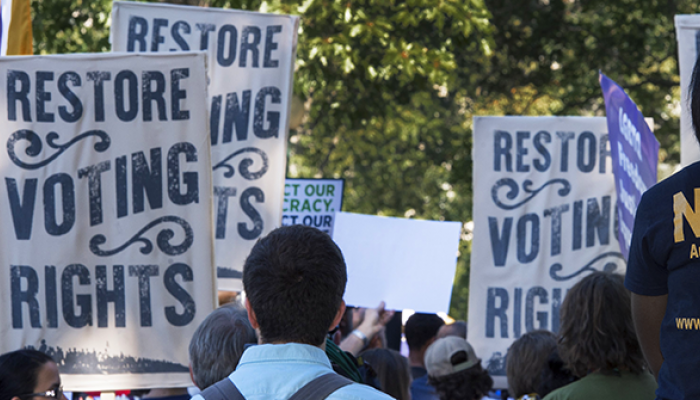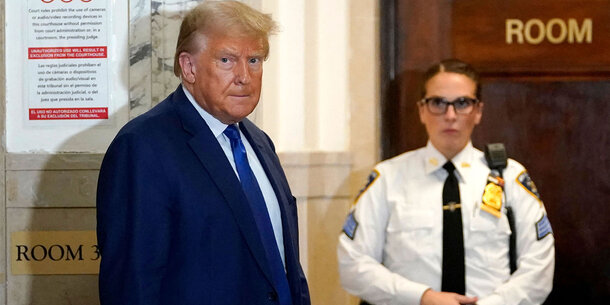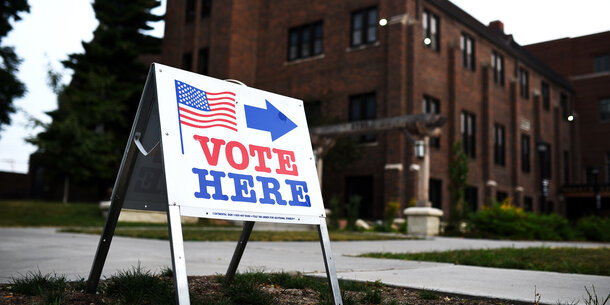Floridians voted overwhelmingly last fall in favor of the Voting Restoration Amendment, also known as Amendment 4, a ballot measure that restored voting rights to as many as 1.4 million residents with a past felony conviction who have completed their sentences. The amendment, which passed with a supermajority of nearly 65 percent, marked the single largest expansion of voting rights in the United States since 1971, when the 26th Amendment lowered the national voting age to 18.
But in a move that undermines the will of Florida voters, Gov. Ron DeSantis has signed into law SB7066, a bill that will weaken Amendment 4 by denying voting rights to returning citizens until they settle any court debts connected to their convictions. In other words, even after completing their sentences, people with felony convictions are ineligible to vote if they have any outstanding court fees, fines, restitution, and costs. Hours after the bill was signed, voting rights groups including the Brennan Center responded by filing a federal lawsuit that challenges the new law, arguing that it punishes returning citizens based on their wealth.
Florida’s new voting law discriminates by wealth and race
Critics of SB7066 are calling it a modern “poll tax” because it makes the right to vote contingent on a person’s wealth, essentially forcing people to pay for access to the polls. In the lawsuit, the plaintiffs argue that the resulting voter disenfranchisement will disproportionately impact low-income individuals and people of color “due to longstanding and well-documented racial gaps in poverty and employment.”
Florida’s new voting law also echoes the state’s long history of restricting the Black vote, which is rooted in Jim Crow-era policies dating back to the 1860s. Prior to the passage of Amendment 4, Florida was one of the last remaining states that barred people with felony convictions from regaining their voting rights after completing their sentences. As a result, 10 percent of the state’s voting age population — and 21 percent of African American adults — were disenfranchised as of 2016. And according to a recent analysis by the Brennan Center, Amendment 4 has already improved Black voter registration rates since it went into effect in January 2019.
“Our research shows that the people who have registered to vote under Amendment 4 are disproportionately black and low-income.” said Myrna Pérez, director of the Brennan Center’s Voting Rights and Elections Program. “There can be no mistaking the racial and class implications of this regressive new legislation.”
Florida’s fees and fines system is almost impossible to navigate
Beyond its discriminatory problems, SB7066 also places a burden on returning citizens to figure out for themselves whether or not they have any outstanding legal financial obligations associated with their previous convictions.
However, Florida does not have a unified system for recording data on outstanding legal costs within the state, or for accessing data on federal or out-of-state financial obligations. In addition, county databases are often incomplete and inaccurate. As a result, it is difficult for returning citizens to know for certain whether or not they have any outstanding court debts, and thus, whether they are violating the law by registering to vote.
“It’s not reasonable to expect, and perhaps even impossible, for people in Florida to figure out whether they have fulfilled all of their legal financial obligations, thanks to the deficiency of data in the system,” said Eliza Sweren-Becker, counsel in the Voting Rights and Elections Program at the Brennan Center. “Under this new law, if returning citizens register to vote, they could be doing so without full knowledge of the status of outstanding legal costs — potentially at the risk of being criminally prosecuted.”
Ultimately, SB7066 is expected to dramatically limit the restoration of voting rights mandated by Amendment 4. Studies have found that the vast majority of legal financial obligations remain unpaid due to the financial status of the defendants. For example, nearly 80 percent of fees and fines in Florida Circuit Criminal Courts in 2018 were unpaid.
Democracy is on the line in Florida
The right to vote is central to a healthy democracy — something that was affirmed by the nearly 5 million Floridians who made history last fall when they supported Amendment 4. SB7066 not only thwarts the will of Florida voters by weakening that amendment, it determines the right to vote in a way that discriminates based on wealth and race, all while forcing them to navigate a problematic court system for fees and fines.
“Florida legislators are trying to do an end run around the unmistakable message that Florida voters delivered at the ballot box in November,” said Sean Morales-Doyle, senior counsel in the Voting Rights and Elections Program. "This legislation flies in the face of what Floridians voted for and those politicians know it.”
(Image: Getty/Paul J. Richards)






